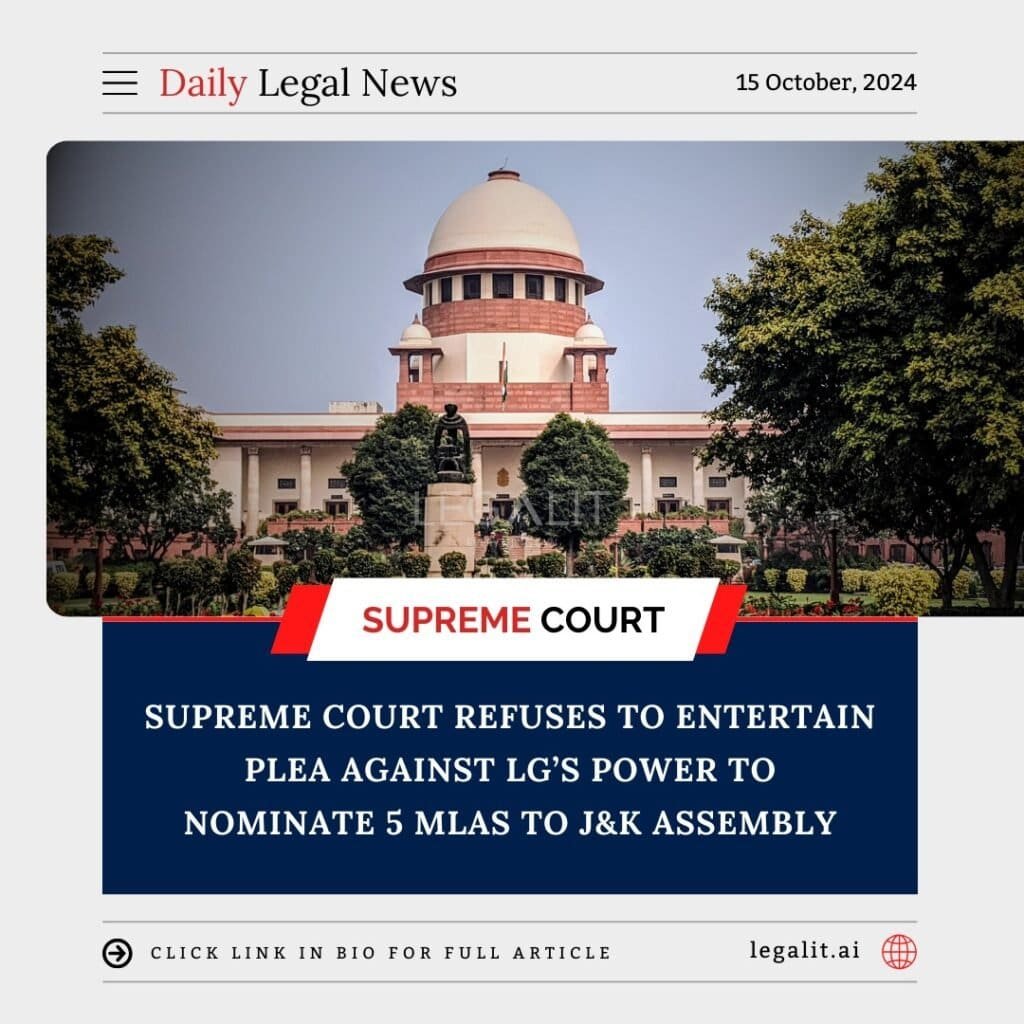
Background of the Case:
The case revolves around the Lieutenant Governor’s (LG) power to nominate five members to the Jammu and Kashmir Legislative Assembly. The plea challenged the legality of this power, asserting that it violates the principles of democracy and the rights of the people to elect their representatives. The petitioners argued that the nomination process grants undue authority to the LG, bypassing the democratic process in selecting members for the Assembly.
Court’s Ruling and Reasoning:
The Supreme Court of India refused to entertain the plea challenging the LG’s power to nominate MLAs to the Jammu and Kashmir Assembly. The Court observed that the power vested in the LG is constitutionally valid and does not breach any fundamental democratic principles. The bench further noted that the existing legal framework allows for such nominations, and as such, the plea did not merit judicial intervention.
The Court emphasized the constitutional provisions and rules governing the administration of Jammu and Kashmir after the abrogation of Article 370, which redefined the region’s governance. The bench upheld the constitutional autonomy of the LG’s office in nominating members as part of the broader process of ensuring smooth governance.
Implications of the Judgment:
This judgment reinforces the power of the LG in Jammu and Kashmir, highlighting the significant role the office plays in the legislative process. The decision may have broader implications for the relationship between elected representatives and nominated members, especially in a politically sensitive region like Jammu and Kashmir. It underscores the importance of constitutional authority in maintaining governance in Union Territories.
Additionally, the ruling sets a precedent for similar cases where the LG’s or a Governor’s power to nominate members to legislative bodies is called into question. This strengthens the executive role in ensuring legislative functioning, particularly in areas transitioning from statehood to Union Territory status.
Need for Reforms in Legislative Nominations:
The controversy around the nomination of MLAs by the LG brings to light the need for reforms in how nominations are made. Critics argue that democratic representation could be undermined by such executive appointments, calling for more transparent criteria in nominating members to legislative assemblies. There is a growing sentiment for ensuring that nominations are based on merit and represent the diverse needs of the region.
Conclusion:
The Supreme Court’s refusal to entertain the plea reaffirms the constitutional authority granted to the LG in nominating members to the Jammu and Kashmir Legislative Assembly. While the decision upholds the existing legal framework, it also highlights ongoing debates around the balance of power between elected bodies and executive appointments in the legislative process.
[ajax_laod_more]